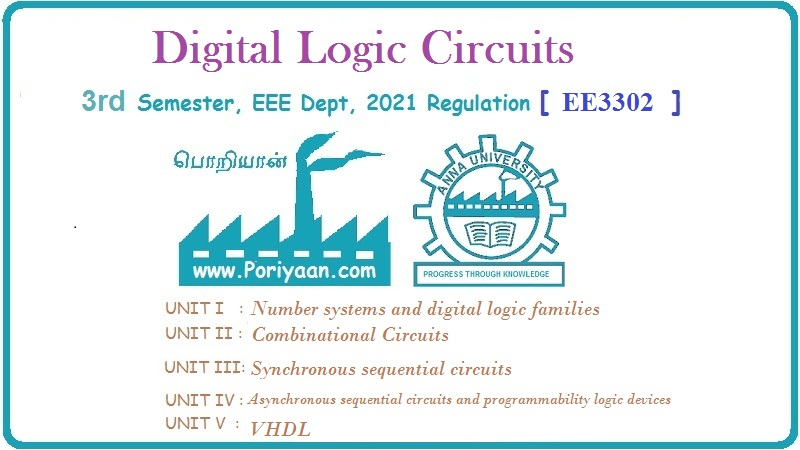Digital Logic Circuits: Unit III: (a) Flip-Flops
Realization of One Flip-Flop using Other Flip-Flop
• It is possible to convert one flip-flop into another flip-flop with some additional gates or simply doing some extra connection. Let us see few conversions among flip-flops.
Realization of One Flip-Flop using Other Flip-Flop
AU
: May-05, 07, 12,15, Dec.-08, 10, 15, 16
•
It is possible to convert one flip-flop into another flip-flop with some
additional gates or simply doing some extra connection. Let us see few
conversions among flip-flops.
1. SR Flip-Flop to D Flip-Flop
The
excitation table for above conversion is as shown in Table 4.9.1.
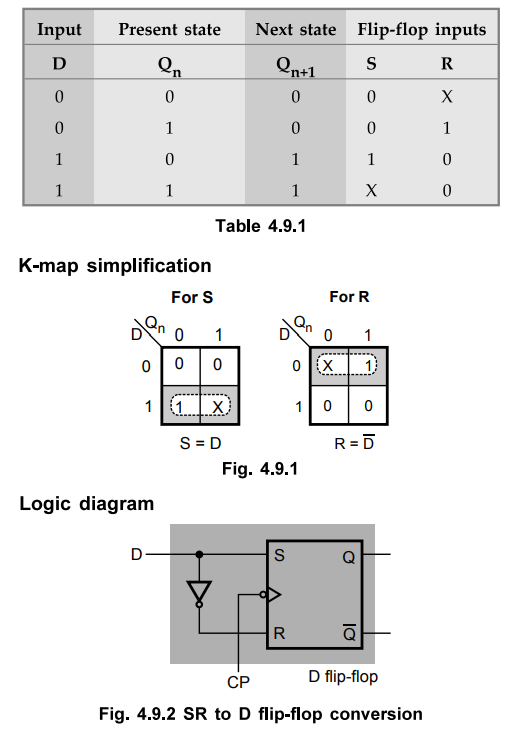
2. SR Flip-Flop to JK Flip-Flop
The
excitation table for above conversion is as shown in Table 4.9.2.
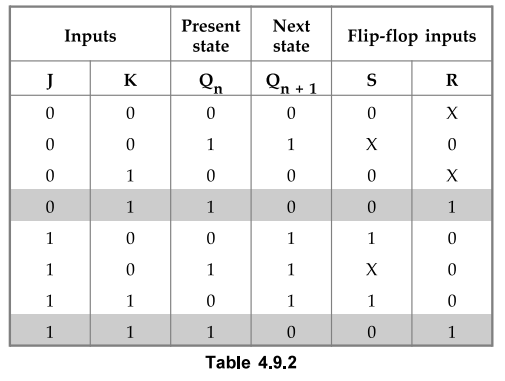
K-map
simplification
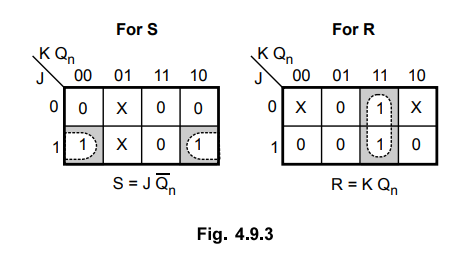
Logic
diagram
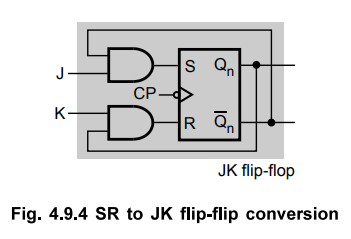
3. SR Flip-Flop to T Flip-Flop
The
excitation table for above conversion is as shown in the Table 4.9.3.
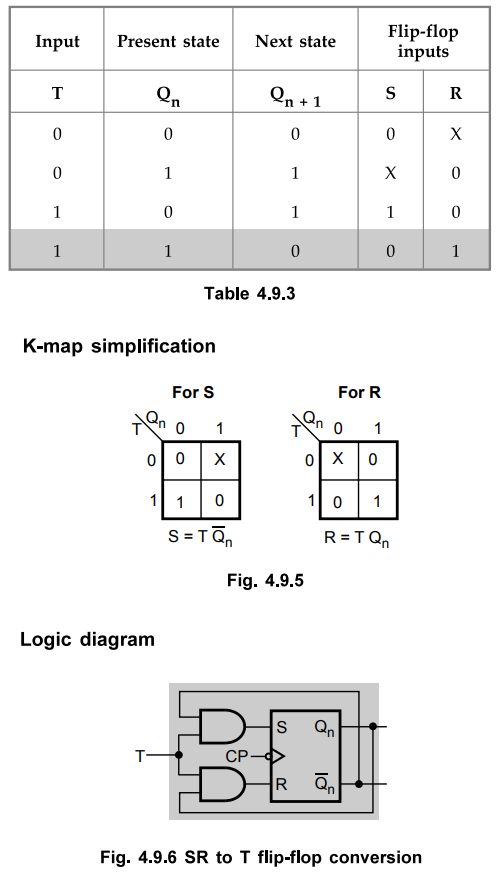
•
If we apply clock pulses to the circuit, the circuit output will toggle from 0
to 1 and 1 to 0. Thus, we can build 1-bit counter using SR flip-flop by
converting it to T flip-flop.
Ex.
4.9.1 Prepare the truth table for the circuit of Fig. 4.9.7 and show that it acts as a T-type flip-flop.
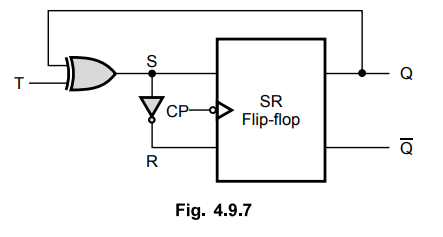
Sol.
:
For
SR flip-flop,
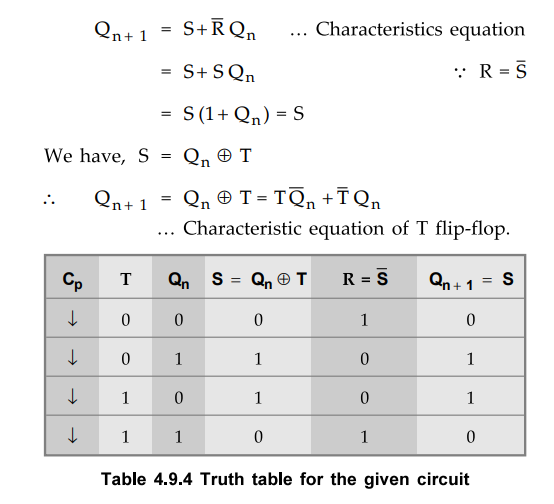
Looking
at column 1 and column 5 of the Table 4.9.4 we can conclude that when T = 0,
the output does not change and when T = 1, the output toggles. Thus, the given
circuit acts as a T flip-flop. This is another way of implementing T flip-flop
using SR flip-flop.
4. JK Flip-Flop to T Flip-Flop
The
excitation table for above conversion is as shown in Table 4.9.5.
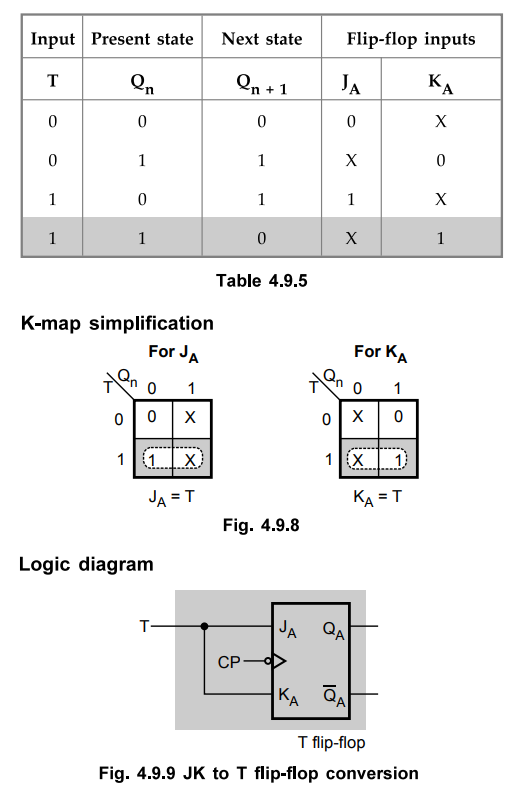
5. JK Flip-Flop to D Flip-Flop
•
The excitation table for above conversion is as shown in the Table 4.9.6.
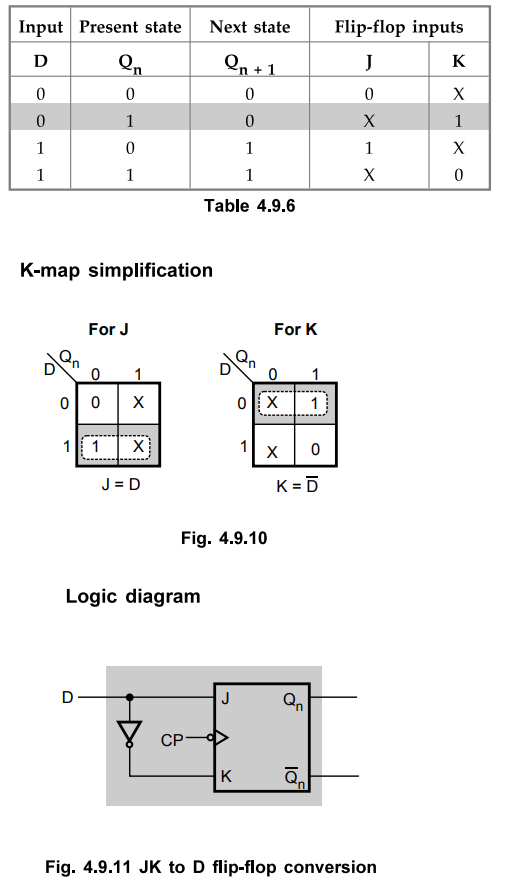
6. D Flip-Flop to T Flip-Flop
•
The excitation table for above conversion is as shown in the Table 4.9.7.
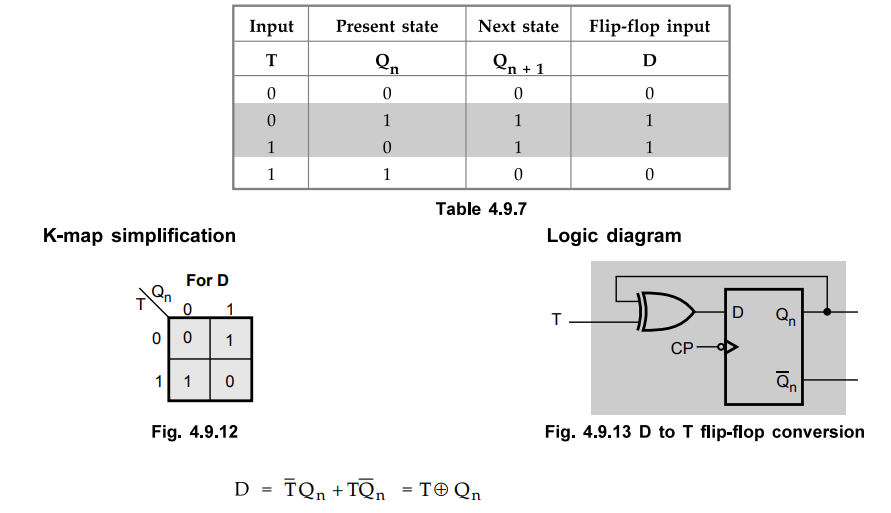
Ex.
4.9.2 Analyze the circuit and prove that it is equivalent to T flip-flop.
Sol.
:
To analyze the circuit means to derive the truth table for it.
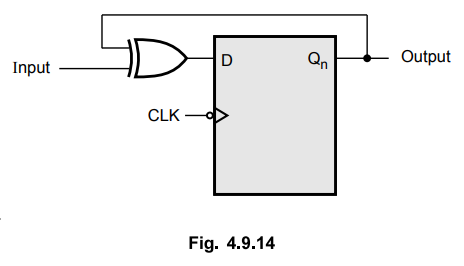
We
have, D = Input ⊕ Qn

In
the above circuit, output does not change when input is 0 and it toggles when
input is 1. This is the characteristics of T flip-flop. Hence, the given
circuit is T flip-flop constructed using D flip-flop.
7. T Flip-Flop to D Flip-Flop
The
excitation table for above conversion is as shown in the Table 4.9.9.
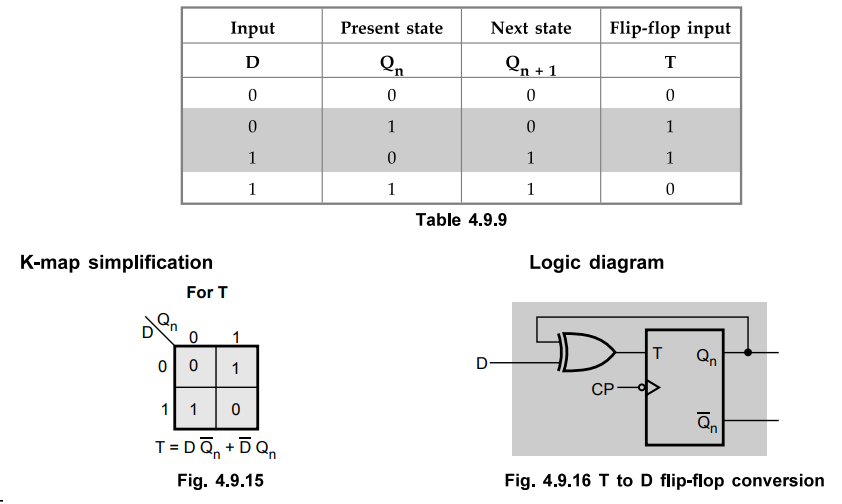
8. JK Flip-Flop to SR Flip-Flop
The
excitation table for above conversion is as shown in Table 4.9.10.
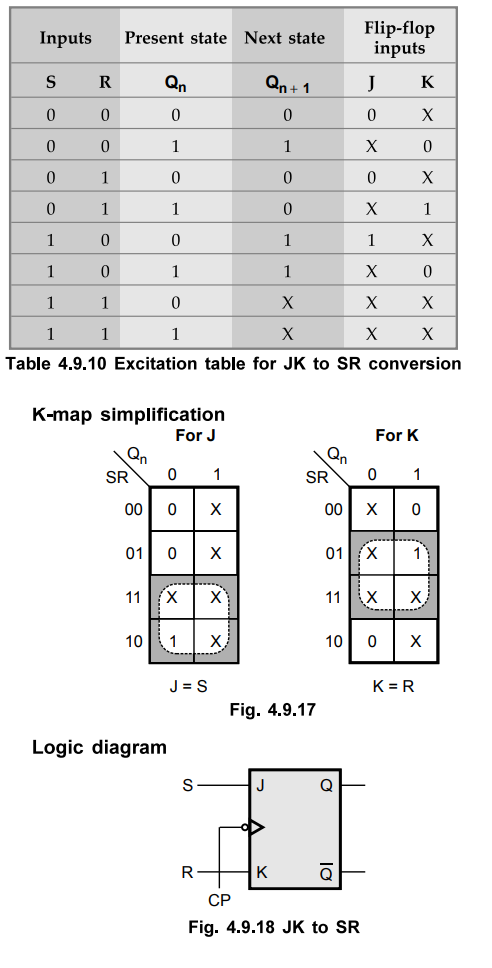
9. D Flip-Flop to SR Flip-Flop
The
excitation table for above conversion is as shown in the Table 4.9.11.
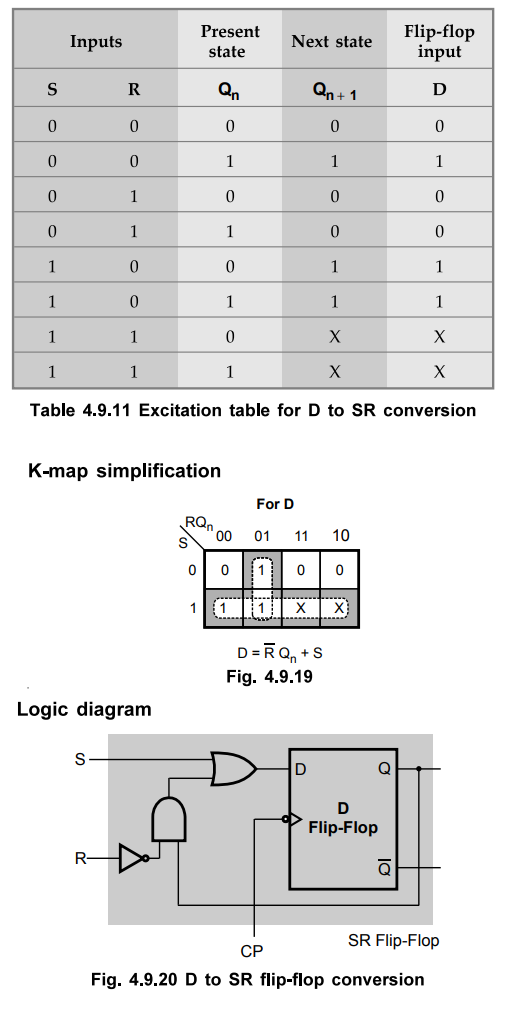
Ex
4.9.3 Explain the realization of JK flip flop from T flip flop.
AU
: Dec.-16, Marks 7
Sol
. :

Review Questions
1. Convert a SR flip-flop into JK flip-flop.
AU : May-12, Marks 8
2. Convert a SR flip-flop into a D flip-flop.
AU : Dec.-08, Marks 8
3. Convert SR flip-flop into T flip-flop.
4. Convert JK flip-flop to T flip-flop.
5. Convert JK flip-flop to D flip-flop.
AU : May-05, 07, Marks 2
6. Convert D flip-flop into T flip-flop.
7. Convert T flip-flop into D flip-flop.
AU : May-15, Marks 2
8. Convert D flip-flop into SR flip-flop.
9. Convert JK flip-flop into SR flip-flop.
Digital Logic Circuits: Unit III: (a) Flip-Flops : Tag: : - Realization of One Flip-Flop using Other Flip-Flop
Related Topics
Related Subjects
Digital Logic Circuits
EE3302 3rd Semester EEE Dept | 2021 Regulation | 3rd Semester EEE Dept 2021 Regulation
